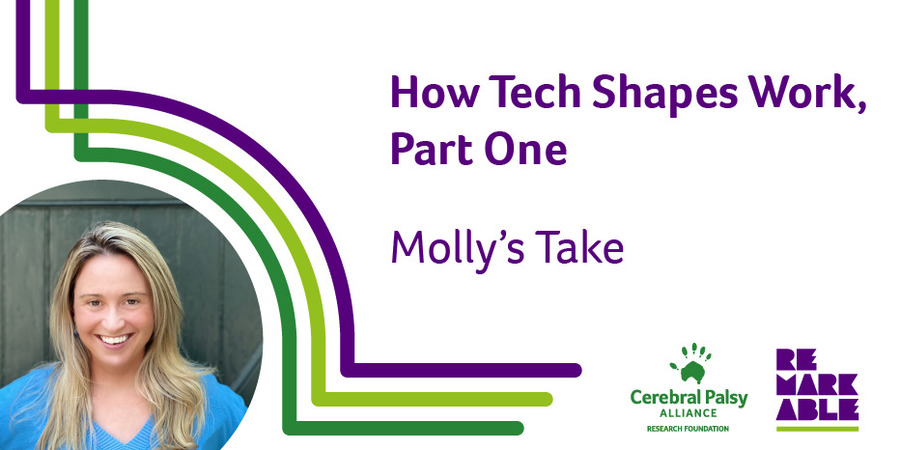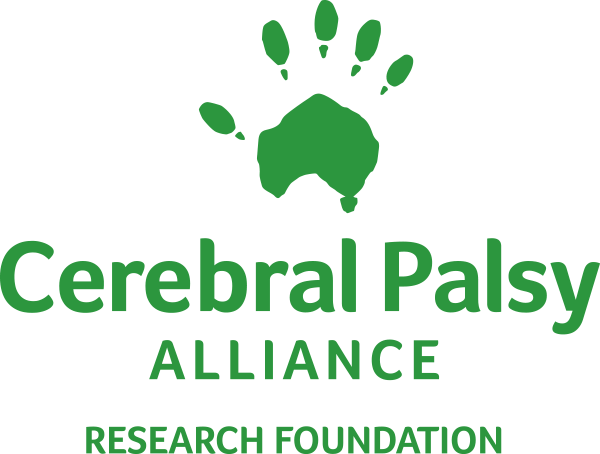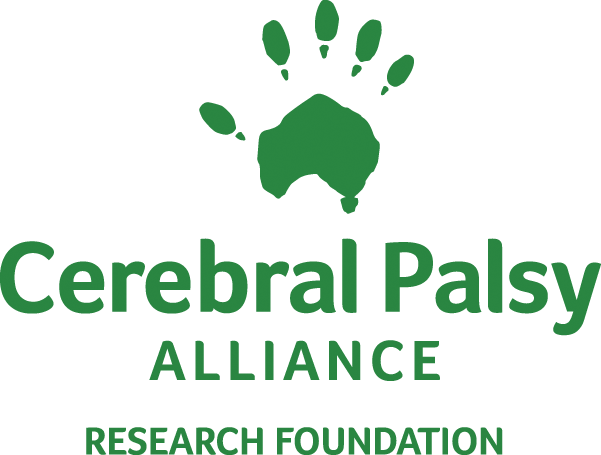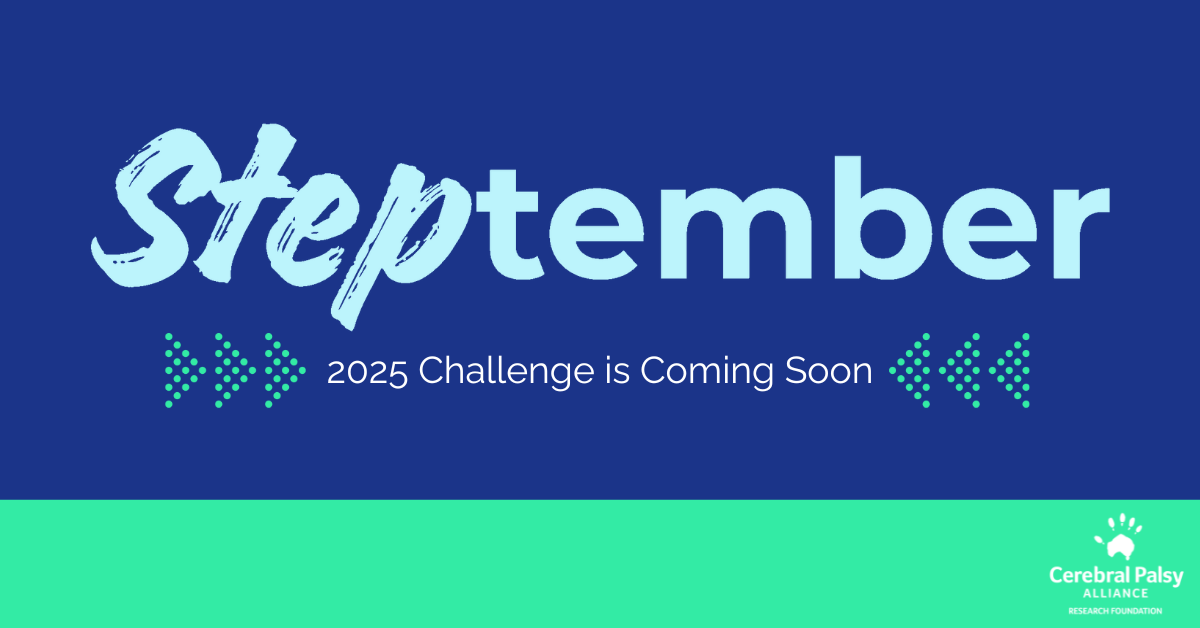
It’s Disability Employment Awareness Month — a time to shine a light on the inequities and barriers to disabled employment. CPARF proudly employs several disabled people, but this isn’t the case for many companies and organizations around the world.
One of the aims of Remarkable US, CPARF’s disability technology startup accelerator program, is to transform the future of work through tech. In the piece below, Molly Levitt, Director of Remarkable US, makes the case for creating a more accessible and inclusive work environment, and she urges us to consider how assistive technology empowers people to achieve their full potential. The following is an adapted excerpt from remarks she recently gave to a company’s recruiting team.
Building a More Accessible, Inclusive Future at Work, Part One
By Molly Levitt
Our world is filled with a ton of different products and services that people use every single day that started as an accommodation for someone with a disability but actually became something that is useful to everyone.
Do you listen to audiobooks? Use an electric toothbrush? Listen to your GPS for directions? Enjoy using cruise control? Or even use email or the internet? Every single one of these innovations was first created to accommodate people with disabilities. And every single one has provided immeasurable value to our lives.
I’m sharing these insights because we know that people with disabilities reside at the cutting edge of the future of technology. They see and experience the world differently, and they push the world to change for the better. The diverse perspectives of the disability community are all shaped by lived experience. And when they’re coupled with professional experience, they make for a great hire.
It's something worth considering because Gen Z is disclosing disability status to employers at an unprecedented rate compared to previous generations — and they expect more. Between 2000 and 2020, the number of students who received special education services under the Individuals with Disabilities Act increased by more than 15%, to 7.3 million.
The youngest working generation isn't afraid to ask for accommodations, and disability self-disclosure among new hires increased 25% between 2019 and 2021 alone. So how can you make sure that every employee has what they need to thrive? Some accommodations are simple, such as making remote work an option. Just moving towards remote work at the start of the pandemic increased the labor participation rate by people with disabilities by 5%.
But we can do better than that. People with disabilities still are unemployed and underemployed at a higher rate than their non-disabled counterparts. Underemployment is often entirely due to employers’ dual lack of understanding and accommodations, and employers are often losing brilliant people because of it.
Here’s the story of just one: I work with a blind startup founder who used to work at Google. She eventually left because they took such a narrow view of her skills and potential. Google only assigned her disability-related work looking at product accessibility, an she left. She went on to build her own company that makes strollers that can become car seats for children who are older and no longer meet the weight limits for stroller/car seat options. She saw this problem, went to the stroller companies, and asked why this didn’t exist.
The companies said it wasn’t possible, but that didn’t stop her. Given her physics background, she downloaded the safety standards and built a prototype that meets them all. Scientists at every major manufacturer said it couldn’t be done. She proved them wrong.
She is legally blind and she manufactured a car seat that an entire industry said was impossible.
Google lost a brilliant team member because they viewed a disabled person through just one lens. They didn’t believe she could thrive outside of her token demographic. Because they focused on only one thing she brought to the table, they missed out on a true innovator.
At Remarkable US, we are committed to amplifying true innovators. We’re dedicated to helping bring assistive technology to market that will make a huge impact on people with disabilities.
Funded by CPARF, Remarkable US runs a 16-week accelerator that provides funding and support to companies building affordable assistive technology. The companies we work with address the whole spectrum of the human experience — from access to work to mobility, communication, and play.
Check out Part Two. To learn more about how you can help us create a more accessible and inclusive future and support the Remarkable accelerator program, contact Molly Levitt at molly.levitt@remarkable.org
Wed 21 May 2025
Are you ready for STEPtember 2025? We’re officially in double digits — CPARF is celebrating 10 years of funding groundbreaking cerebral palsy research and driving innovation forward. And there’s no better way to mark this milestone than with our biggest, boldest STEPtember yet. Thanks to you, STEPtember has grown into a global movement that powers […]
Thu 15 May 2025
Celebrate Your Birthday with Purpose: Start a Fundraiser That Changes Lives Birthdays are for joy, reflection, and connection — and now, they can help fund groundbreaking research, fuel innovation in assistive technology, and create lasting change for people with cerebral palsy and other disabilities. Celebrate your special day by starting a customized birthday fundraiser to […]



